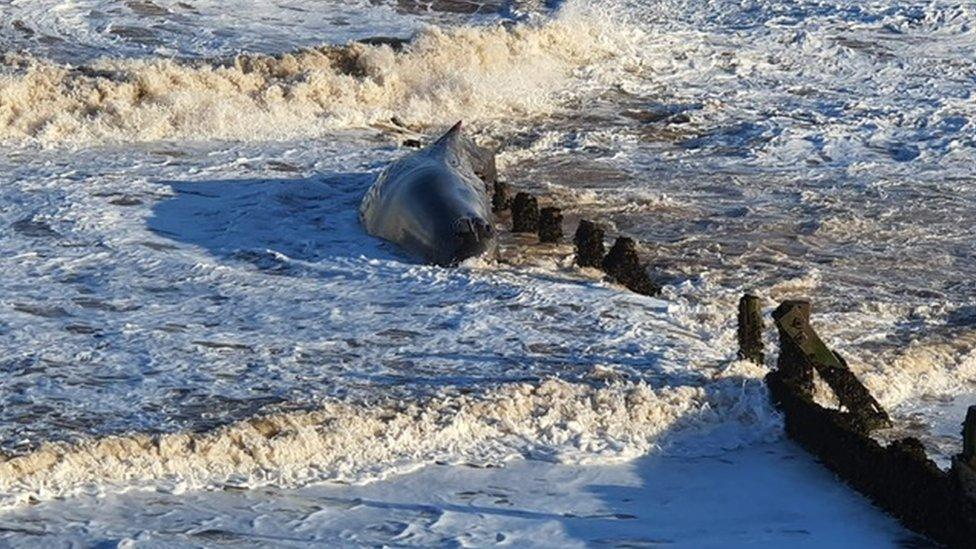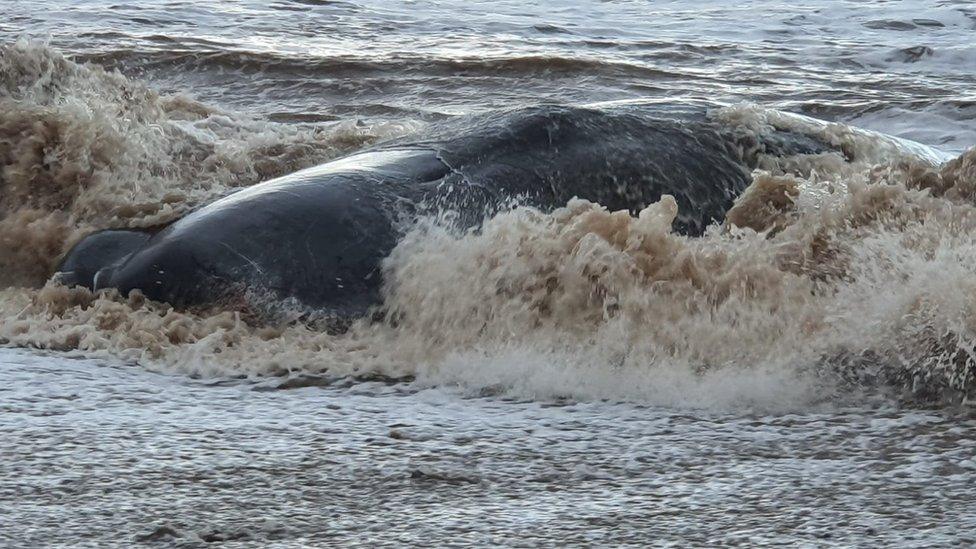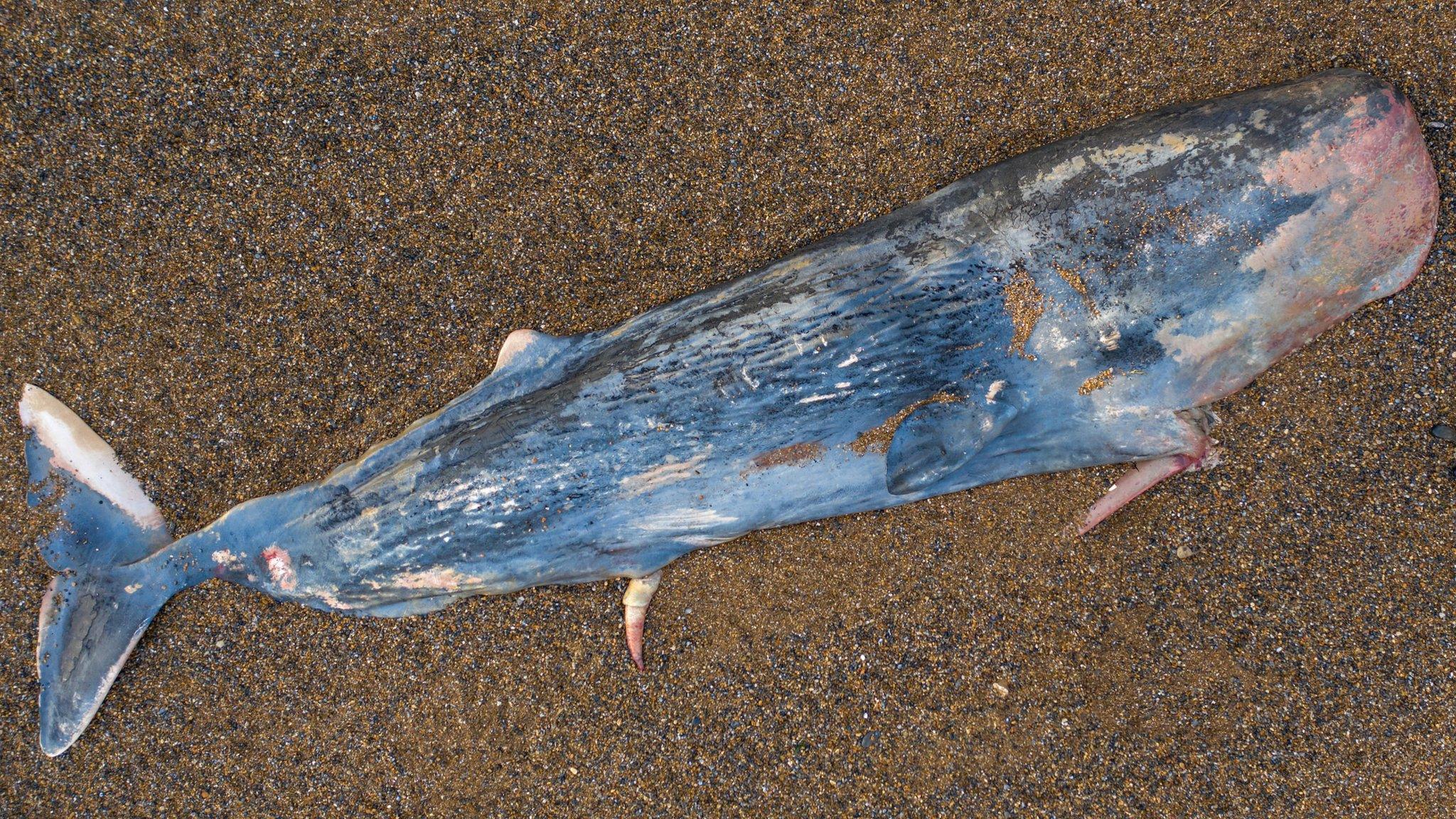Withernsea: Whales stranded on beach die
- Published
Up to 10 sperm whales have been stranded on the East Yorkshire coast
Ten sperm whales found washed up on the North Sea coast have died.
The pod was first spotted on a beach between Tunstall and Withernsea, near Hull, at about 08:30 GMT.
Members of the British Divers Marine Life Rescue (BDMLR) said poor weather conditions and the size of the whales meant it was impossible to save them.
A spokesperson said the young whales were "in very poor nutritional condition" and had most likely suffered a "navigation error".
They rarely survive long once stranded, the group said.

The BDMLR has been involved in the rescue of marine wildlife since its formation in 1988
According to the BDMLR the size of the sperm whales - which can reach 65ft (20m) in length and weigh up to 80 tonnes - meant there were no safe methods for lifting and moving them.
A member of the public called 999 to report the stranding, and the coastguard was despatched to the scene.
'Catastrophic loss'
Ch Supt Darren Downs, of Humberside Police, urged people to stay away from the area "to allow teams from HM Coastguard to manage what is an extremely distressing scene".
He warned that gathering in groups posed a risk of spreading Covid-19.

Marine expert Robin Petch said younger males can end up "confused in shallower water off the east coast"
Robin Petch, a marine expert and Sea Watch Foundation ambassador, said: "Sperm whales are a species that shouldn't come into this part of the North Sea, but a few come down that way.
"They are a deep-water animal that feed on squid and dive in the deep waters of the continental shelf. Often younger males can end up confused in the shallower water off the east coast.
"Once they are ashore, chances of survival are very slim, none of the rescue equipment can deal with whales that big.
"The loss of a large group, probably of young males, is catastrophic," Mr Petch added.

The whales on the beach are sperm whales, according to the BDMLR

Follow BBC Yorkshire on Facebook, external, Twitter, external and Instagram, external. Send your story ideas to yorkslincs.news@bbc.co.uk, external.
Related topics
- Published1 December 2020
